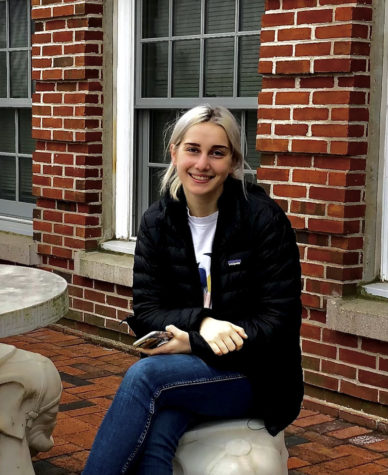ETHS students join national youth activism movement
August 26, 2019
High schoolers across the nation have begun a modern student activism movement. Through activist events, students are creating change on local and national levels for topics such as gun violence, women’s rights and school policies. ETHS is home to many student clubs and organizations which are all focused on addressing these topics.
Recently, a group of ETHS students started a March For Our Lives chapter in Evanston, which will begin this school year.
“The March For Our Lives’s mission has to do with voter registration and with the primaries coming up, it’s important,” says senior Jessica Rogers in regards to starting the chapter in Evanston. Since the organization formed in the wake of the Feb. 2018 Parkland shooting, March For Our Lives has become a powerful national movement. According to the March For Our Lives website, their goal is to have stricter gun laws and background checks, as well as to register young voters. Chapters of this national organization plan various local events, giving high school students a chance to get involved.
While working through national organizations provides a strong platform for many high school students’ beliefs to be heard, students can also be activists by joining clubs within the school.
Activist clubs in ETHS are also trying to create an impact within the city and school. This year, Intersectional Feminist United Club, formerly Women’s Empowerment Club, aims “to do more locally-based work,” says co-president Newcomb. “We also want to engage in some non-partisan political work such as contacting officials, encouraging voting.”
As co-presidents of Intersectional Femininst United Newcomb and junior, Louise Bond have previously participated in and planned events for the Moonbee project, which provides menstrual supplies to women in underdeveloped nations.
Many students engage in activism, but forget that their peers have put in the work to organize and plan these events.
The main angles to organizing activism events are creating, planning and promoting. Rogers and other student activists are creating these clubs and chapters such as March For Our Lives in ETHS, which allows other students to be involved in student activism.
“[Other ETHS students] asked if I wanted to be a part of it and I was super interested in it because it is something that is super relevant right now,” says Rogers about starting of the chapter in Evanston prior to the 2020 presidential election.
Planning is another important part of student clubs and organizations; for the Intersectional Feminist United club collaborating and communicating with student and staff members in the school is vital for the work and planning for events to get done.
“We run the weekly meetings, present project ideas to the club, and communicate with people in and outside of the building to carry out those projects,” Newcomb says in regard to the jobs she has as co-president.
Finally, promoting an event can be difficult, for instance trying to get other students to come and support the event is a challenging process and student leaders at ETHS use morning announcements, posters hung up in the school and social media to spread the word.
Social media has not only become a way for students to begin engaging in activism but also to hear about the work their peers are already doing in their schools.
This year’s priority for student activist groups at ETHS is to broaden the number of people participating in their events. “In the past two years, we never had many members, and we want to work really hard to get many people involved,” says Newcomb.
Similar goals made for new organizations such as the March For Our Lives chapter, who are preparing for their first official year. “We want to have our name and our mission out there,” Rogers says. “So when we do start planning these events the better. We want students to be involved, so we can do more work and create a bigger impact.”
Many ETHS students also work within the Evanston community to address inequities that reach beyond ETHS. A topic that is extremely important to many students across Evanston in the past few years was dress codes. Junior Clare Newcomb worked with other students in district 65 and in district 202 to bring students concerns to administrators.
“We went to a district 65 board meeting with some middle school students and presented why they should change their dress code to be less stringent and sexist like ETHS did, and they decided to change it,” says Newcomb. “This not only helped District 65, but helped some ETHS students get civically active and reflect on how stringent dress codes reinforces body shaming and rape culture.”
Other forms of activism are not done by clubs, but by individual students. Junior Brynn Aaronson, who’s raised money to help educate girls around the world by selling clothing and stickers. While Aaronson runs the organization, she also attributes much of her success to having connections and receiving help from others. “If I hadn’t had the connections that I had and a supportive family that would help me out then it would’ve been a lot harder,” says Aaronson.
Working in clubs or joining national organizations provides a platform for many students to be involved in activism. “[Find] something that’s important to you and try to do something about it– anybody could do that,” says Aaronson about participating in student activism.









